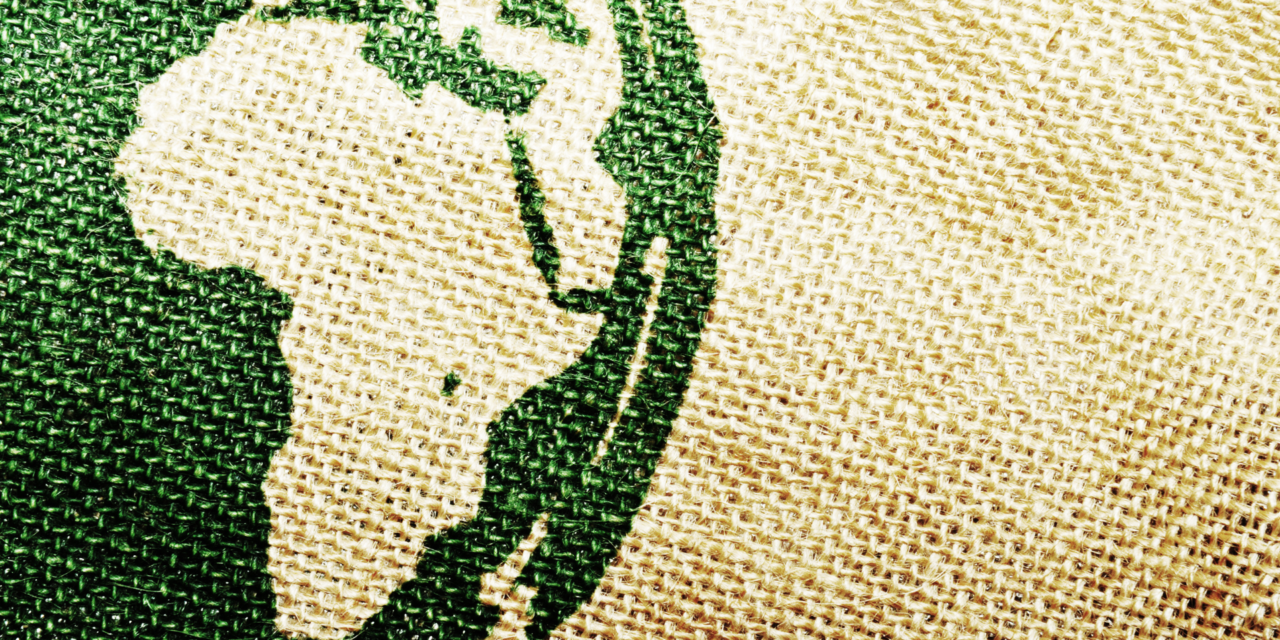The imperialist agenda in Africa continues through the interference of global powers. Western and, increasingly, non-Western nations and transnational corporations frequently enforce harmful trade agreements and pursue neoliberal policies that undermine local economies and increase dependence on global capitalism. These economic pressures undermine the autonomy of African nations and perpetuate a cycle of dependence on foreign aid.
The rise of populist, autocratic, and undemocratic governments across Africa is a troubling trend. Some of these regimes have emerged in collaboration with or under the influence of Western powers and global capitalism. Despite their claims to empower local capitalist classes, history shows that these elites are tied to and subservient to global capitalists. This further exacerbates inequality and hinders genuine progress and economic self-determination for African nations.
The persistence of extractivism as the dominant development paradigm on the continent is unmistakable. This model, controlled and overseen by transnational corporations (TNCs), leads to the exploitation of abundant mineral resources and thus to the accumulation of global capital at the expense of the relegation of local communities in the periphery.
In Southern African (and the global South more generally), this manifests itself in the perpetuation of a reliance on exporting commodities including cash crops and minerals, at the expense of production to meet the needs of people and the environment. Transnational corporations often benefit from the support of trade and energy agreements that provide them with a degree of impunity and allow them to engage in various economic ills, including illicit financial flows, wage evasion, and other harmful practices. These agreements provide transnational corporations with favourable conditions that allow them to circumvent national regulations and operate with minimal accountability. The abrogation of conditions conducive to the exercise of corporate power and impunity creates a milieu in which instability, conflict, and even conflagrations may be ignited.
Developments in West Africa/Sahel region
The decline of democratic aspirations in the Sahel is closely linked to the long-standing influence of the exploitative Françafrique system. Geopolitical interests and disputes between the ‘West’ and Russia further complicate matters, leading to destabilising events such as coups d’état, as recently occurred in Niger, where President Mohamed Bazoum was overthrown.
While there is no question that military coups contradict democratic principles and are not to be welcomed, the situation in Niger has particular nuances. This is a military action that appears to have garnered widespread popular support because of a desire to end a damaging relationship between the country and France, making it appear that the military action was motivated by legitimate concerns. This connection between Niger and France, particularly with regard to the exploitation of mineral resources, especially uranium, appears to be the main concern. The apparent support of a large segment of the population indicates widespread dissatisfaction with the French presence, whose focus on natural resources, particularly uranium, is essential to France’s own energy stability.
Some suggest that war in the region is imminent, triggered by events in Niger. Indeed, France and some ECOWAS (Economic Community of West African States) countries allied with the French have expressed interest in military intervention in the country, under the pretext of restoring democratic order and bringing back Mohamed Bazoum. On the other hand, the current military government in Niger and other countries that have recently experienced similar military coups against leaders sympathetic to France, such as Mali and Burkina Faso, have shown a willingness to intervene as well to help Niger defend its territorial integrity by opposing any attempt at foreign armed interference.
In a statement issued by the Secretary General of the Algerian Workers’ Party, the party condemns threats of foreign military intervention in Niger, stating, “We know: the stakes underlying the desire of US and EU imperialism to intervene militarily in Niger have nothing to do with constitutional legitimacy, any more than democracy and human rights were used to justify the criminal military interventions in Libya, Iraq, Afghanistan, Yemen, and so on.
For US and EU imperialism, it is exclusively a matter of ensuring the continued plundering of Niger’s wealth, while the Nigerien people are deprived of basic living conditions and plunged into abject poverty. It is also a matter of imposing the maintenance of a multinational foreign military presence in Niger.”
No less interesting are the considerations of a possible intervention by the Wagner Group, a private military company backed by the Russian state, in defence of the coup regime and against French influence, though this is now unlikely given the death of its leader, Yevgeny Prigozhin. The possible outbreak of conflict in the region, involving more than a dozen countries, is a cause for concern. Such a development would seem to favour Western imperialism, as history shows that the exploitation of resources on the African continent usually thrives in a warlike context.
Youth uprising
The youth uprising in this region, apparently supporting the after coup regimes, reflects a generation that is no longer willing to accept the status quo, seeking to challenge corrupt regimes and demand accountability from their leaders. Social media and digital communication platforms have played a crucial role in mobilizing and galvanizing young activists across borders, fostering a sense of solidarity and collective action.
As the youth of the Sahel come together to amplify their voices, they are calling for inclusive governance, transparent institutions, an end to corruption and stop France’s influence in their domestic affairs and luting of their mineral resources. In Niger, young people engaged in prolonged protests outside the French embassy in Niamey, ultimately culminating in the ‘occupation’ and destruction of embassy premises.
The youth uprising in West Africa and the Sahel serves as a testament to the power of collective action and the belief that the region’s future lies in the hands of its youthful population. As the struggle continues, it remains a defining moment in the region’s history, shaping the path towards a more democratic, inclusive, and just society.
Yet there is a concern that if these young people are not ideologically well-oriented, they could provide fertile ground for far-right movements and groups or even jihadist tendencies. Social movements and other progressive groups are urgently called upon to play a central role in rapidly raising the political consciousness of these young people and thus motivating them to adopt a progressive agenda.
Russia-Ukraine conflict
In recent times, Africa has become a battleground for dangerous diplomatic maneuvering with economic repercussions stemming from the conflict between Russia and Ukraine. Africa’s reliance on imports of wheat and crude oil from Ukraine and Russia has led to a notable increase in the prices of these essential products. Sanctions on Black Sea ports have disrupted export channels, causing supply shortages and price hikes in African markets. This economic strain is a crucial aspect of the ongoing conflict and underscores the significance of understanding its repercussions on a global scale.
Representatives from Russia and Ukraine have been actively attempting to sway public opinion and influence governance in Africa. Despite their efforts, both countries have faced varying degrees of success. Ukraine’s engagement with the African Union has not yielded significant results, while Russia has undertaken extensive diplomatic efforts, exemplified by the Russian Minister of Foreign Affairs and International Cooperation’s recent tour and the Russia-Africa summit attended by many African states in St Petersburg last week, which was seen by some as an implicit African endorsement of Putin’s war. Some believe that the summit was “a remarkable diplomatic success” for Russia.
The African countries’ reluctance to condemn the Russian invasion at the UN has been partially attributed to historical affinity. The legacy of the Soviet Union’s support, both logistically and politically, during the era of, mostly, Southern liberation struggles against colonisation and apartheid in South Africa still resonates with some African nations. This historical connection continues to influence Africa’s stance on current international conflicts. Another point in Russia’s ‘favour’ is that, unlike some Western powers (members of NATO), Russia tells Africa that it has neither colonised nor exploited the African continent (yet?).
Africa has found itself at the center of diplomatic ramifications and economic consequences arising from the conflict between Russia and Ukraine. It is crucial to acknowledge that the support once offered by the Soviet Union is now a thing of the past, and the geopolitical landscape has evolved considerably. The alliance between Ukraine and NATO, aligning them with Europe and the United States, has shifted the dynamics of African-Russian relations. African nations may need to recalibrate their historical affiliations and make informed decisions based on the current geopolitical realities.
Western powers vis-a-vis China in Africa
The claim that China is the new imperialist power in Africa, surpassing the historical involvement of Europe and the United States, must be critically examined. While it is true that China has actively penetrated the African continent to do business, cooperate, and provide attractive loans, comparing its presence with that of France, Britain, Italy, Portugal, and the United States is utterly simplistic.
First, China’s economic involvement in Africa, while substantial, pales in comparison to the long-standing influence of Western powers. The figures show that land grabbing and extractivism are practiced on a larger scale by Western countries that have historically exploited African resources to their advantage.
Moreover, Western powers have attached strict conditions to loans and economic assistance in Africa, often perpetuating a cycle of dependence and control. In contrast, China’s loans, though often criticized for their high cost, do not come with the same level of political interference and conditionality as those from the West.
Moreover, the military presence of Russia, France, and the United States in Africa, along with their disputes over influence and military aid, shows that they are still heavily involved in the continent’s affairs. Russia’s Wagner Group and U.S. drone and military bases are examples of their continuing military interests in Africa.
In contrast, China’s approach is characterized by its focus on business and economic development rather than meddling in local politics. This has allowed China to prioritize economic cooperation and infrastructure projects such as the Belt and Road Initiative, construction of airports, bridges, and other major developments.
While China’s presence in Africa is noteworthy and should be carefully monitored, calling it a new imperialist power misrepresents the complexity of what is happening. It is important to recognize that Western powers still have significant engagement in Africa, often with even more damaging consequences. By acknowledging these nuances, we can have a more informed discussion about the economic and political dynamics that will shape the future of the African continent.
‘Islamic’ Insurgency and fundamentalism
The Islamist insurgency, which originally had its stronghold in West Africa, has now expanded its presence to southern Africa, with northern Mozambique affected by such violent conflict since 2017. Despite the variations in motivations, two common threads can be identified: Resource conflicts and the socioeconomic exclusion of citizens from economic and political opportunities.
In Mozambique, the root cause of these insurgencies seems to lie in the frustration and marginalization of youth who are denied access to meaningful economic and political participation. The resulting desperation drives some to extremist ideologies and violence as a means of seeking recognition and change.
As these conflicts escalate, foreign intervention, especially led by Western troops, especially France, has become a common response. In the case of Mozambique, the presence of Russian, SADC (South African Development Community), and Rwandan troops adds to the complexity of the situation. These foreign troops often take a leadership role, in the name of fighting jihadists and terrorism. While the deployment of foreign troops may serve to address immediate security threats, it also raises concerns that foreign interests may influence local affairs. Replacing local armies with external forces can inadvertently exacerbate existing tensions and create dependence on foreign aid and military support.
Addressing the root causes of these insurgencies requires a comprehensive approach that focuses on socioeconomic development, youth empowerment, and political integration. By providing opportunities for economic inclusion and meaningful participation in governance, the appeal of extremist ideologies can be reduced, thereby shrinking the space for violence and conflict.
The urgency of building a people-led pan-African agenda
Amidst these challenges, the continent requires a Pan-Africanist popular project to unite social movements and progressive intellectuals. Such a project aims to resist imperial and neoliberal projects and counter anti-democratic, anti-poor governance.
Collaboration among diverse interests of working people is essential to forge alliances for sustainable development and sovereignty protection. A Pan-Africanist popular and progressive agenda sought to seeks unity, solidarity, and economic self-determination for all Africans. It addresses historical injustices, economic disparities, and political challenges while envisioning a united and prosperous Africa. Key elements include eradicating poverty and inequality, ensuring fair distribution of resources, especially land and productive assets, quality education, healthcare, and housing.
Politically, the agenda advocates for accountable leadership and citizen participation beyond elections. It promotes regional integration and genuine movement freedom. Environmentally, it must prioritizes sustainable agriculture, eco-friendly industrialization, and people-owned means of production.
Empowering the youth through education and job creation is crucial. Addressing external debt and promoting economic sovereignty are priorities for control over resources and policies. Global solidarity with progressive movements and intellectuals underscores the interconnectedness of African liberation with global justice struggles.
In essence, a grassroots-driven Pan-Africanist agenda must be inextricably rooted in anti-imperialism and anti-colonialism while concurrently adopting and embracing an authentic and robust feminist perspective.
——————
[i] Postdoctoral fellow at the Institute for Poverty, Land, and Agrarian Studies (University of the Western Cape). Member of the board of directors of Focus on the Global South.









